Happy June! I recently spent quite a bit of time participating in answering some press related questions for a forthcoming Sundress Roundtable, in which different editors of different presses offer their feedback and points of view. I will share the Sundress Roundtable when it is published, but for now, I am sharing my own answers to the questions.
(Again, these are just my own individual answers. Other editor/poet people might have very different sorts of answers.)
~Juliet Cook/Blood Pudding Press
***
***
Why did you found your
press?
I started my Blood
Pudding Press close to ten years ago now, so it's hard for me to remember the
exact details of how I felt at that time, but I know it involved a strong and
genuine passion for poetry and a realization that it was mostly poets who
published other poets. I had been a big fan of 'zines in my late
teens through mid twenties, then indie literary magazines in my twenties all
the way until now. When I was in my early 30s, I became a big fan of frequent
blogging for several years. My blog site was Xanga and my blogger name
was candydishdoom. I met a few creative writers there (some of whom I've
remained connected with ever since), right around the time when they were
initially starting their own online literary magazines and/or small presses.
For example, Rachel Kendall, who started Sein und Werden not long after we met
and has kept it going for years now and Kristy Bowen, who started Dancing Girl
Press around that time. I loved how small indie poetry presses seemed like
unique artsy poetic variations of 'zines and I loved the individualism of
our Xanga blog style communication and I loved poetry and poetry chapbooks.
I think I'd had a little back
burner of an inkling to start my own itty bitty press for a year or two before
I actually did it, but I felt overly nervous that I'd somehow screw it up. But
in late 2006, I had this sudden spurt of finishing a small series of Twin
Peaks inspired poems that had been sitting unfinished in the back of a folder
for about 10 years, and I felt really strongly about the poems, and thought
they worked best together instead of individually, and so I decided that would
be a great time to start my own small press and publish my own chapbook first,
because if I had trouble with formatting, design, or anything else, I wouldn't
be affecting another poet with my fledgling difficulties. Kristy Bowen
gladly shared information with me about how she formatted her Dancing Girl
Press chapbooks, I followed her formatting tips, I designed my own cover art, and
I took it from there. After I got more comfortable with formatting and
design, I shifted away from publishing myself with my own press and started
publishing multiwriter collections and individual chapbooks by others.
For years, I felt so passionately excited about choosing
chapbooks, designing chapbooks, and uniquely hand-crafting chapbooks. I loved
being a part of the poetry community who was not only focused on myself, but
also helped support others too.
What were some of the
early pitfalls you found?
I honestly don't
remember many EARLY pitfalls, aside from my initial nervousness. I remember
feeling extremely drawn to, excited and passionate about what I was doing for
quite a few years.
Reading the responses above mine, about money and time, I
agree, BUT I don't remember those being major concerns of mine when I first
started my press. As far as funding, I don't expect nor do I want anyone
else to help fund my press (other than buying the created chapbooks). I am an
ANTI-fan of how much crowdfunding has grown in recent years. As far as time,
that can certainly be a challenge, but I’ve tried my best not to take on more
than I can reasonably handle.
For me personally, the pitfalls came later, when I started to
feel as if my press was inundating so much of my time and creative energy, that
I didn't have enough time to read things not related to the press, to write and
revise my own poetry, to submit my own poetry and so forth. I think I have a
high drive but a moderate to slow process of accomplishing certain kinds of
things. I'm not a good multitasker; I'm a one focus at a time sort
of person; and for various reasons, it seemed to be getting harder for me to
split my focus in all the directions I wanted to and it got to the point where
I sometimes started to feel bothered by my own brains slow pace. Over the
years, I've heard quite a few small press editors/writers express that their
press started to take precedence over their own writing - and that's fine, if
you WANT that to happen - but ultimately, I DIDN'T want anything to take precedence
over my own writing, at least not on a long term, ongoing basis.
Some other pitfalls that came later for me were partly
generated by social media and/or my own brain’s interpretation of certain
aspects of social media. Social media, especially facebook, is so
up-to-the-minute that it can rather easily cause you to feel like if you're
offline for a few days, then you're not going to stay up to date and you're not
going to stay on top of things that are going on in poetry land. Plus sometimes
on social media, certain poets or presses suddenly seem to get lambasted by a
whole group of others and if you were offline for a few days, you don't even
know what generated the lambasting when you get back online, and even if some
of the lambasting was deserved, it seems to quickly reach the point of
fast-paced attack mode, like people are flinging an arsenal of pies at other
people's faces and the pies have weapons loaded inside and people seem to
launch too quickly into taking the side of this weapon-loaded pie or that
weapon-loaded piece.
Another social media related pitfall for me is that I feel
like I see other small presses talking about their big influxes of chapbook
sales and then I start wondering why is my press barely selling enough
chapbooks to break even when other small presses sound like they're selling
more than double the amount I'm selling and so what am I doing wrong etc...
When I started to question my own way of doing things, that's
when I also started to reconsider my press - because I don't want poetry to
feel like some sort of competitive popularity contest, yet part of my mind felt
as if it was starting to warp itself into that way of thinking.
Like one part of my mind couldn't care less how I compare to
others; but the other part of my mind was some mutant cheerleader doing little
splits and wondering why this press's splits and this press's splits appeared
to be spreading much further than mine, even though I didn’t necessarily want
mine to spread that much further.
How much marketing is a new indie press expected to do for its authors?
I think this is variable and largely depends on the press. The size of the press, the money of the press, the number of editors of the press, the time constraints of the press, the location of the press, the brainwaves of the press and what those waves are aiming to do.
How much marketing is a new indie press expected to do for its authors?
I think this is variable and largely depends on the press. The size of the press, the money of the press, the number of editors of the press, the time constraints of the press, the location of the press, the brainwaves of the press and what those waves are aiming to do.
My press doesn't do a great deal of in person promoting,
overall. I've been to AWP a few times, but certainly can't afford that
conference regularly. I've been to smaller more local conferences and events in
my general area. But I'm limited because of location, my brain flukes, and
other reasons.
I do promote new chapbooks quite a bit online (via facebook,
twitter, my personal blog, my Blood Pudding Press blog, and my website), I do
have an online shop offering my Blood Pudding Press chapbooks (https://www.etsy.com/shop/BloodPuddingPress),
and I do send out quite a few review copies of each chapbook. I appreciate it
when the authors help to market and promote their work too.
One positive thing about social media for presses is that's
it's a widely available promotional tool.
One not so positive thing is it can shift your attention all
over the place, looking at a little bit of this and a little bit of that and
wondering how in the world you're doing to find time to focus on everything
that interests you.
With everything that's going on in social media, all at the
same time, even though its posts can direct attention towards your press, they
don't necessarily increase the sales of your press. Just because people like a
bunch of things on social media doesn't mean they're going to buy all those
things they like.
What are some of the
differences between online chapbooks and print chapbooks? What are the benefits
of each?
I personally prefer print chapbooks, visually and on a sensory level. I think they look and feel more unique and extra-special and one-of-a-kind and you can touch them and smell them and flip through their pages at your own pace.
I'm a big fan of online literary magazines, but when it comes
to chapbooks, I definitely tend to be more positively drawn to print.
However, online chapbooks are more easily and widely
accessible and thus could have a significantly wider potential audience.
What tips do you have on
designing the layout of an issue or book?
I don't have the best tips to offer. I'm a one-woman old school designer, who uses Microsoft Word to design my chapbook's innards AND covers and I'm not good at explaining how I do it, I just do it how I do it.
I don't have the best tips to offer. I'm a one-woman old school designer, who uses Microsoft Word to design my chapbook's innards AND covers and I'm not good at explaining how I do it, I just do it how I do it.
How do you determine fair pricing for cover art?
I highly value visual art, but I
can't afford to pay an artist 100 bucks to design a cover for me, or even 50
bucks. In my own experience, some visual
artists value poetry just as much as some poets value visual art, and they're
excited enough about having their art appear on the forum of a poetry chapbook
and being credited in the book and receiving a free copy of the book that they
don't necessarily require monetary payment. I've paid some artists a small
amount (in addition to crediting them and giving them a copy of the book) to
create a new piece of art specifically for a cover. I've also purchased an
existing piece of art from an artist in appreciation for being given permission
to use that existing piece of art on the cover of a book. I've also used parts of some of my own visual
art creations as cover art for some Blood Pudding Press chapbooks.
What would you say writers
expect from the editors of a new press?
I think that depends on the writer and the press. For me as a writer, I'm fairly open, but I would like a press to offer me a tentative time frame of WHEN the book will be published (and offer me updates if that time frame changes), a reasonable amount of free copies of the book with additional copies at a discount rate, and a reasonable amount of help promoting the book. Since that's what I desire as a writer, that's what I aim for as an editor too.
I think that depends on the writer and the press. For me as a writer, I'm fairly open, but I would like a press to offer me a tentative time frame of WHEN the book will be published (and offer me updates if that time frame changes), a reasonable amount of free copies of the book with additional copies at a discount rate, and a reasonable amount of help promoting the book. Since that's what I desire as a writer, that's what I aim for as an editor too.
What's the most rewarding
aspect of beginning a new press?
Feeling like you're being a personal part of the poetry community. Feeling like you're creating what is meaningful to you and making a small but powerful difference to a few others.
Spending some personal time and energy and creative attention and genuine care focusing on other poets you appreciate and admire and helping their voices be heard.
Feeling like you're being a personal part of the poetry community. Feeling like you're creating what is meaningful to you and making a small but powerful difference to a few others.
Spending some personal time and energy and creative attention and genuine care focusing on other poets you appreciate and admire and helping their voices be heard.
Receiving
meaningful tidbits of positive feedback and support directed at your press's
chapbook's innards as well as their design.
Having a few people who seem to actually care about and appreciate what you do
and genuinely enjoy it.
Being your true creative self and helping to share a few other true creative
selves.


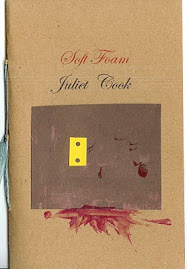





















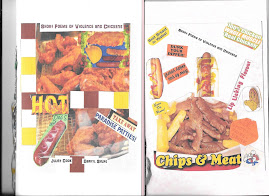





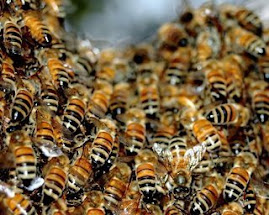












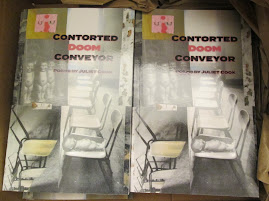
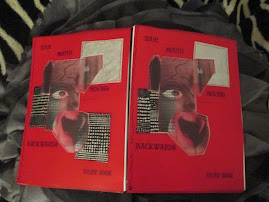









No comments:
Post a Comment